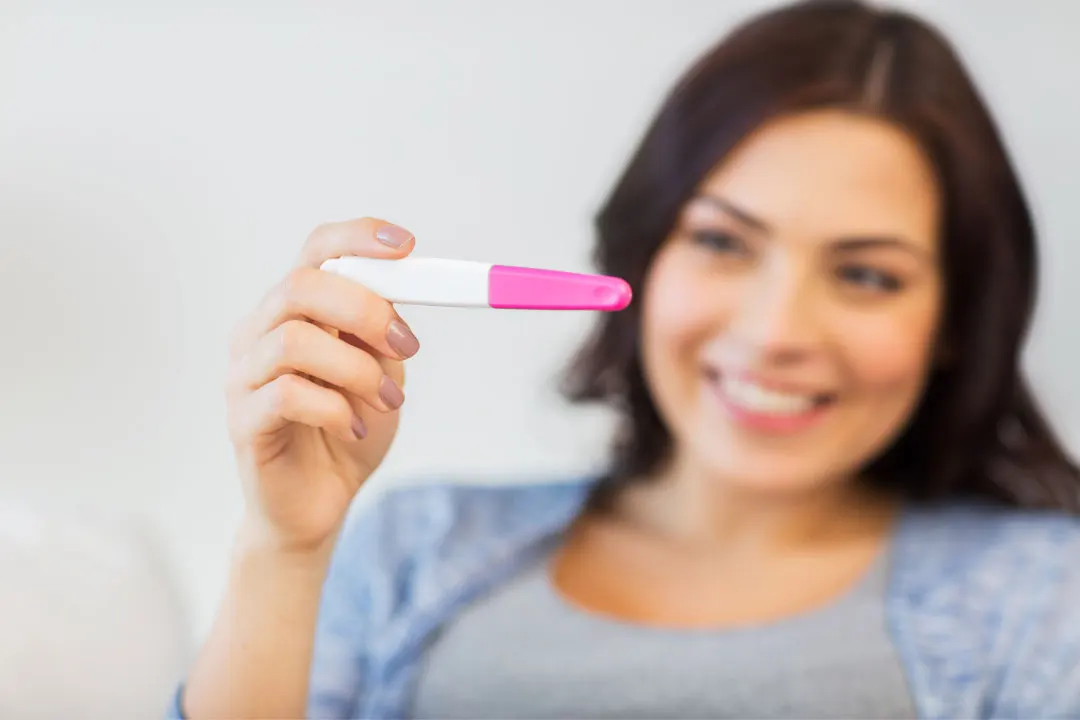Coenzyme Q10, or CoQ10, is a powerful antioxidant associated with improvements in heart health, increased energy, and anti-aging effects. But did you know that CoQ10 may also help improve fertility?
Coenzyme Q10 (CoQ10) is a naturally occurring antioxidant in the human body commonly touted for its various anti-aging benefits. CoQ10 has been extensively studied for its ability to help mitigate many age-related conditions and effects, including low energy, macular degeneration, and cardiovascular issues. However, CoQ10 can also impact another function of the human body that naturally deteriorates with age: fertility.
Nonetheless, supplementing with CoQ10 for fertility can be beneficial not only for those experiencing age-related CoQ10 depletion, but also for aiding in the process of conception and contributing to healthy pregnancies in people of all ages. The following are five benefits of CoQ10 for fertility, the reproductive system, and overall health during pregnancy, supported by scientific research on this indispensable antioxidant.
You May Also Like:
Earth Energy Supplements vs VOKE-Energy Chewable Tabs
The Best Mushroom Blend Supplements: 5 Top Brands Reviewed
Reason #1 to try CoQ10 for fertility:
CoQ10 can help diminish the effects of reproductive aging
Fertility decreases as people age in a process known as reproductive aging. One possible cause of this decrease in fertility is oxidative stress, which occurs when super-reactive oxygen molecules, known as free radicals, react with the body’s healthy cells – including sperm and egg cells – causing damage over time. The body has its own natural defense against free radicals in the form of antioxidants, such as CoQ10.
Antioxidants prevent oxidative stress by reacting with free radical oxygen before it comes into contact with healthy cells. As people age, their production of these antioxidants decreases, but antioxidant supplementation can compensate for this decline. In fact, a 2015 study found that CoQ10 restored healthy function to egg cells, increasing overall fertility. Reproductive cells are particularly vulnerable to oxidative damage, but antioxidants like CoQ10 can help protect them.

Reason #2 to try CoQ10 for fertility:
CoQ10 may improve ovarian response and embryo quality
Poor ovarian response (POR) is a potential factor that may decrease fertility. Ovaries regularly produce oocytes, cells that can divide via meiosis to become eggs, but their ability to do so diminishes with age. Ovarian stimulation, in which a fertility doctor prescribes hormones to induce ovulation repeatedly, can help treat this condition — CoQ10 can support this process.
In a 2018 trial, a group of low-prognosis POR patients undergoing ovarian stimulation took supplements containing CoQ10. The test group participants were found to have a higher rate of fertilization compared to the control group. They also had healthier embryos, and embryo transfer to the uterus was more often successful. So while CoQ10 can’t replace ovarian stimulation, it may aid in and improve the success rate of this process.

Reason #3 to try CoQ10 for fertility:
CoQ10 may help reduce the risk of certain pregnancy complications
The importance of maintaining a healthy pregnancy cannot be overstated, and any symptoms of complications should be addressed and reported to an obstetrician immediately. Pre-eclampsia is a potential pregnancy complication that is typically indicated by high blood pressure and excessive proteins found during urine testing. It can also cause headaches, vision problems, pain below the ribs, or swelling of the extremities.
Although pre-eclampsia is treatable, if left untreated, it may progress to eclampsia and potentially terminate the pregnancy. However, a 2009 study found that supplementation with CoQ10 helped reduce the rates of pre-eclampsia in individuals at risk for the condition. While treatment is still necessary in cases of pre-eclampsia, it is suggested that CoQ10 can decrease the likelihood of developing this complication in the first place.

Reason #4 to try CoQ10 for fertility:
CoQ10 can help address common causes of infertility
Two common causes of infertility are polycystic ovary syndrome (PCOS) and idiopathic oligoasthenoteratozoospermia (iOAT). In PCOS, an overabundance of androgens can lead to cysts in the ovaries that disrupt their natural function, while iOAT refers to an unexplained low sperm count. Both of these conditions decrease fertility – but both can also benefit from supplementation with CoQ10 for fertility.
For PCOS, a 2019 study found that CoQ10 supplementation decreased total testosterone levels and increased sex hormone binding globulin, which regulates how much sex hormones the body can actually use. Another 2019 study found that individuals with iOAT who took CoQ10 for fertility were found to have a higher sperm count and greater sperm motility. By addressing these two common causes of infertility at their source, CoQ10 can help increase fertility.
Reason #5 to try CoQ10 for fertility:
CoQ10 can aid in the production of healthy reproductive cells
The production of sperm and egg cells, like most biological processes, involves the expenditure of cellular energy, which the body synthesizes in the form of adenosine triphosphate (ATP). Producing reproductive cells is particularly taxing and requires the body to burn through large amounts of ATP. CoQ10 plays a vital role in the body’s natural synthesis of ATP, so it can aid in the production of sperm and egg cells by helping to provide the necessary energy.
However, the process of synthesizing ATP occurs within mitochondria, microscopic powerhouses within cells. CoQ10 is often poorly absorbed by the body and often struggles to penetrate the protective mitochondrial membrane. A derivative of CoQ10 called mitoquinol mesylate, sold under the brand name MitoQ, has far better absorption rates. A 2016 study of MitoQ found that mitoquinol mesylate penetrates the mitochondrial membrane far more efficiently than CoQ10, allowing it to support the synthesis of cellular energy directly and, by extension, the synthesis of reproductive cells at the source.

The total benefits of CoQ10 for fertility
The use of CoQ10 or its alternative variant, mitoquinol mesylate, can be beneficial for those experiencing fertility issues. However, due to the poor absorption of CoQ10, mitoquinol mesylate is preferable in terms of efficacy. Its potential to boost the synthesis of reproductive cells, treat common causes of infertility, and support the health of embryos and expecting parents alike make it a valuable aid in trying to conceive and maintain a healthy pregnancy.
For Further Reference:
NIH National Library of Medicine: Oxidative Stress and Reproductive Function in the Aging Male
Biomed Central Reproductive Biology and Endocrinology: Effect of Coenzyme Q10 and transcutaneous electrical acupoint stimulation in assisted reproductive technology
NIH National Library of Medicine: Comparative Bioavailability of Different Coenzyme Q10 Formulations in Healthy Elderly Individuals
Important Note: The information contained in this article is for general informational purposes only, and should not be construed as health or medical advice, nor is it intended to diagnose, prevent, treat, or cure any disease or health condition. Before embarking on any diet, fitness regimen, or program of nutritional supplementation, it is advisable to consult your healthcare professional in order to determine its safety and probable efficacy in terms of your individual state of health.
Regarding Nutritional Supplements Or Other Non-Prescription Health Products: If any nutritional supplements or other non-prescription health products are mentioned in the foregoing article, any claims or statements made about them have not been evaluated by the U.S. Food and Drug Administration, and such nutritional supplements or other health products are not intended to diagnose, treat, cure, or prevent any disease.


